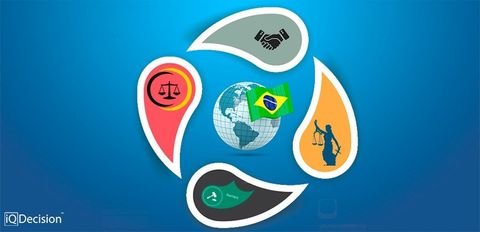Resolving a dispute in Brazil starts with lower courts. Parties unsatisfied with a court decision can appeal it with the High Court (STJ) or Federal Supreme Court (STF). The role of a judge is to administer proceedings & decide on the merits of a case based on the presented evidence.
Timeframe for Filing Civil Claims
The official deadline for filing a claim is 10 years (unless the law specifies which statute of limitations is applicable to a particular case). Under the STJ’s recent ruling, a statute of limitations of 3 years is to be applicable to filing claims based on contractual obligations.
Litigation in Brazil
Initiating civil proceedings requires filing a lawsuit. Once it’s confirmed that a lawsuit meets the basic legal requirements, litigation in Brazil can commence. If either party declares no interest in resolving a dispute in Brazil, hearings may not take place. Also, a court may require parties to submit additional evidence.
Remedies
Interim measures can include the freeze of assets, suspension of certain actions or cancellation of discussions.
Parties may file all kinds of claims. If a claim meets all legal requirements, a request may be made to satisfy it. Any decision to award money as compensation for damages will be augmented by interest & monetary recalculation at the rates established by applicable law or contractual rules. Please note that penalty damages aren’t available in Brazil.
Public Access
Those looking to initiate legal proceedings in Brazil should keep in mind that the public can have access to court hearings & documents. However, access to certain claims may be restricted for confidentiality reasons.
Cost
Prior to filing a claim, a plaintiff must pay a fee (defendants aren’t required to pay one). The losing party incurs costs proportional to the amount of their loss.
Appeals
Parties can appeal the final decision. Most interim decisions can be overturned through an interim or regular appeal after the final decision is made.
Foreign Judgments
The exclusive prerogative to recognize & enforce foreign judgments rests with the STJ. It must issue an order confirming that a decision rendered by a foreign court meets all the requirements of Brazilian law.
Brazil: Arbitration
There may be 2 kinds of arbitration agreements: those representing an arbitration clause & those representing a transfer agreement.
Conclusion of an arbitration agreement in Brazil is normally done in writing. Once it’s drawn up, it’s included in a relevant agreement or a separate document containing a specific reference to it.
Initiating an arbitration in Brazil requires appointing an arbitrator(s). Individuals appointed as arbitrators must have some legal background & enjoy parties’ confidence.They must also be impartial & independent in their judgements. Arbitrators may be dismissed if their appointment violates restrictions of Brazilain law.
For an arbitration to be a success, it must meet the following requirements:
- equal treatment of parties;
- impartiality of arbitrators;
- arbitrators’ freedom of reasoning in making a decision.
Courts’ Intervention
Once a decision is made to initiate an arbitration in Brazil, courts aren't allowed to intervene unless otherwise provided in the arbitration agreement.
Deadlines for Rendering Arbitral Awards
Normally, parties agree on the deadline for an award. If there’s a disagreement, an award must be made within 6 months from the date of commencement of an arbitration. Please note that an award is to be done in writing & signed by all arbitrators.
ADR
ADR in Brazil is still in its infancy. However, recent years have seen attempts to use mediation for resolving disputes in Brazil.
Looking to resolve a dispute in Brazil? Need advice on ADR regulation in Brazil? Why not reach out to IQ Decision UK?


















